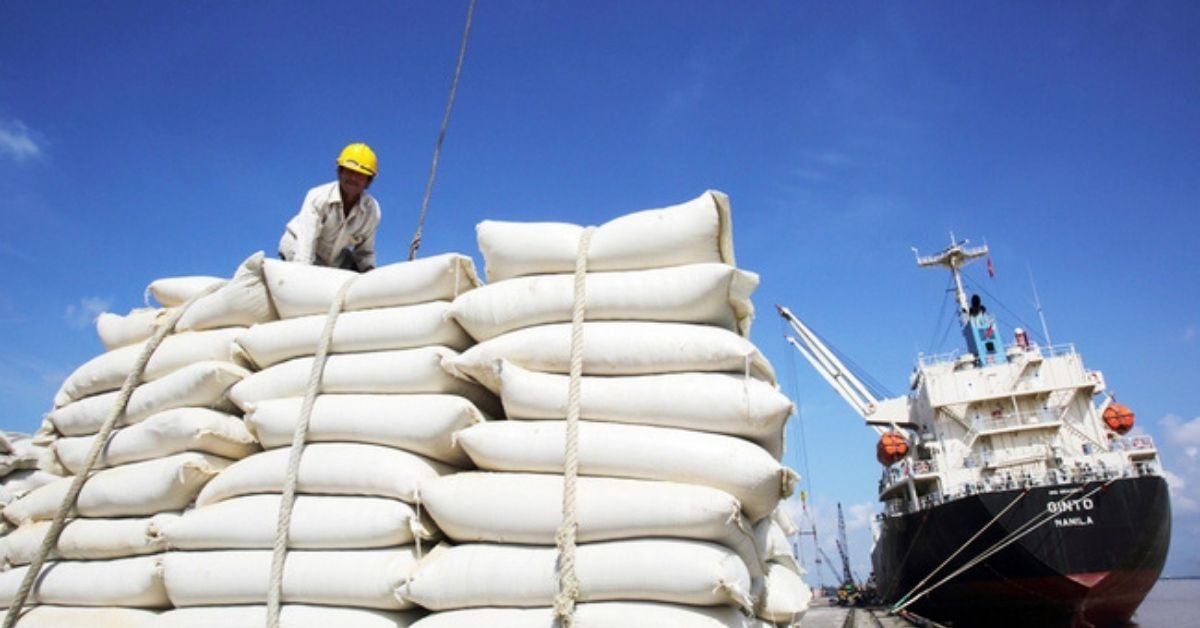A dinner party marking the successful export of high-quality rice to Bangladesh was held in Nay Pyi Taw on April 05, 2023. The event was attended by Union Ministers Dr Kan Zaw, U Maung Maung Ohn, U Hla Moe and U Aung Naing Oo, Deputy Ministers U Kyaw Myo Htut, Daw Than Than Lin, Dr Aung Gyi and U Nyunt Aung, permanent secretaries, chairpersons of the Myanmar Rice Federation, Myanmar Rice Miller Association, Myanmar Rice and Paddy Traders Association, vice-chairpersons, executive members, entrepreneurs and invitees.
During the ceremony, Union Minister for Commerce U Aung Naing Oo said Myanmar and Bangladesh signed an MoU on rice trade under the G-to-G pact.
Then, Permanent Secretary Md Ismiel Hossail of the Ministry of Food of Bangladesh made a speech via the video clip and Myanmar Rice Federation Chairman U Ye Min Aung also remarked. Afterwards, all attendees had dinner together.
“Takes no account of current plight of rice farmers in Rakhine State” The Minister of Commerce, U Aung Naing Oo, announced that the exportation of rice grown in Rakhine State to Bangladesh will be allowed to be increased.
According to Military Council-controlled newspapers on April 4th, the Minister confirmed that a shipment of 200,000 tons of rice in total, including 2,500 tons grown in Rakhine State, has already been exported to Bangladesh.
Additionally, the Minister expressed plans for more rice exports from Rakhine State to Bangladesh in the future.
On April 3rd, during a meeting of the Working Committee on Social Economic Development in the Rakhine Region, the Minister delivered that statement at the meeting hall of the Ministry of Commerce in Naypyidaw. However, the Minister did not elaborate on how many more tons of rice will be allowed to be exported.
U Khin Maung Gyi, Vice President of Rakhine Economic Initiative Public Co., Ltd (REIC), commented that granting the permission to export rice produced in Rakhine State via Sittwe will prove to be beneficial for the local farmers and millers.
“Currently the majority of rice produced in Rakhine State is stuck within the domestic market, with most of it being exported to Yangon and regions bordering China. After subtracting general and travel expenses, the profit for Rakhine rice traders is often lower than expected. However, if the rice grown in Rakhine is permitted to be exported to Bangladesh or India, which are closer, stronger business opportunities will emerge, ultimately benefiting Rakhine State. That’s my opinion”, he told Narinjara.
U Khin Maung Gyi cautioned, “On the other hand due to the low inventory of rice held by farmers, these opportunities may result in greater benefits for rice entrepreneurs than for the farmers themselves.”
According to the Arakan Farmers’ Union, the last rice planting season in Rakhine State saw a decrease in rice yield of approximately 40 percent, as only 800,000 acres of land were able to be planted, due to the increased cost of importing fuel and other raw materials.
A Pauktaw farmer provided a good insight into the real situation on the ground commenting, “The rice that we are able to grow and produce was barely sufficient for our own consumption,
leaving us with no surplus to sell. After factoring in the expenses of labor hire, fuel, and fertilizer, there is almost no profit remaining. The remaining rice is solely meant for subsistence.”
Bangladesh and Myanmar governments were able to sign a memorandum of understanding to facilitate rice trading between the neighboring countries, on September 7th, 2017.Following the signing of the memorandum of understanding, Myanmar exported a total of 200,000 tons of rice, which included 2500 tons produced by Rakhine State, to Bangladesh.
Bangladesh’s relations with Myanmar are deteriorating over the Rohingya issue. The largest influx of Rohingya refugees from the country to escape persecution by Myanmar’s military began in August 2017. However, in the midst of this tension, the two countries have continued bilateral trade relations to meet the needs of their domestic market.
It is heard the term ‘Myanmar-Bangladesh rice diplomacy recently through media platforms. The use of rice as a diplomatic tool has received global media coverage. despite Myanmar-Bangladesh tensions. There is nothing new to say about the influence of food on politics. It is really appreciable that Myanmar and Bangladesh have already started rice diplomacy to mend the ties. Now, time will say how fruitful Myanmar-Bangladesh rice diplomacy would be.
Myanmar and Bangladesh have started practicing their rice diplomacy. Myanmar supplies to Bangladesh will deepen their ties. This can be a great effort by both sides to build good relations with the Bangladeshi and Myanmar governments.
It will also build good bilateral relations between the people of Bangladesh and Myanmar. In the short term, the new generation on both sides wants better relations in terms of economy, tourism, etc.
There may be some problems between Bangladesh and Myanmar. However, these issues (Rohingya refugees and border issues) should be properly addressed by both sides. Bangladesh is going to become the economic miracle of South Asia. Bangladesh is praised by the international community in every international forum.
Ping-pong diplomacy led by China and the United States was set up to strengthen their relationship. We can also expect another application of ping-pong diplomacy similar to rice diplomacy.
Paddy’s diplomacy is a small initiative but its significance is huge. This small initiative will turn into a great achievement for both parties.
A high-level official visit could be a step to strengthen ties. The two prime ministers may exchange visits to normalize relations. This is good news for Myanmar and Bangladesh.
We can see the rice trade between the two countries as an accessory to bilateral diplomacy. Their expectation is that this commercial relationship can play a major role in solving the ongoing crisis between Bangladesh and Myanmar regarding the Rohingya.






